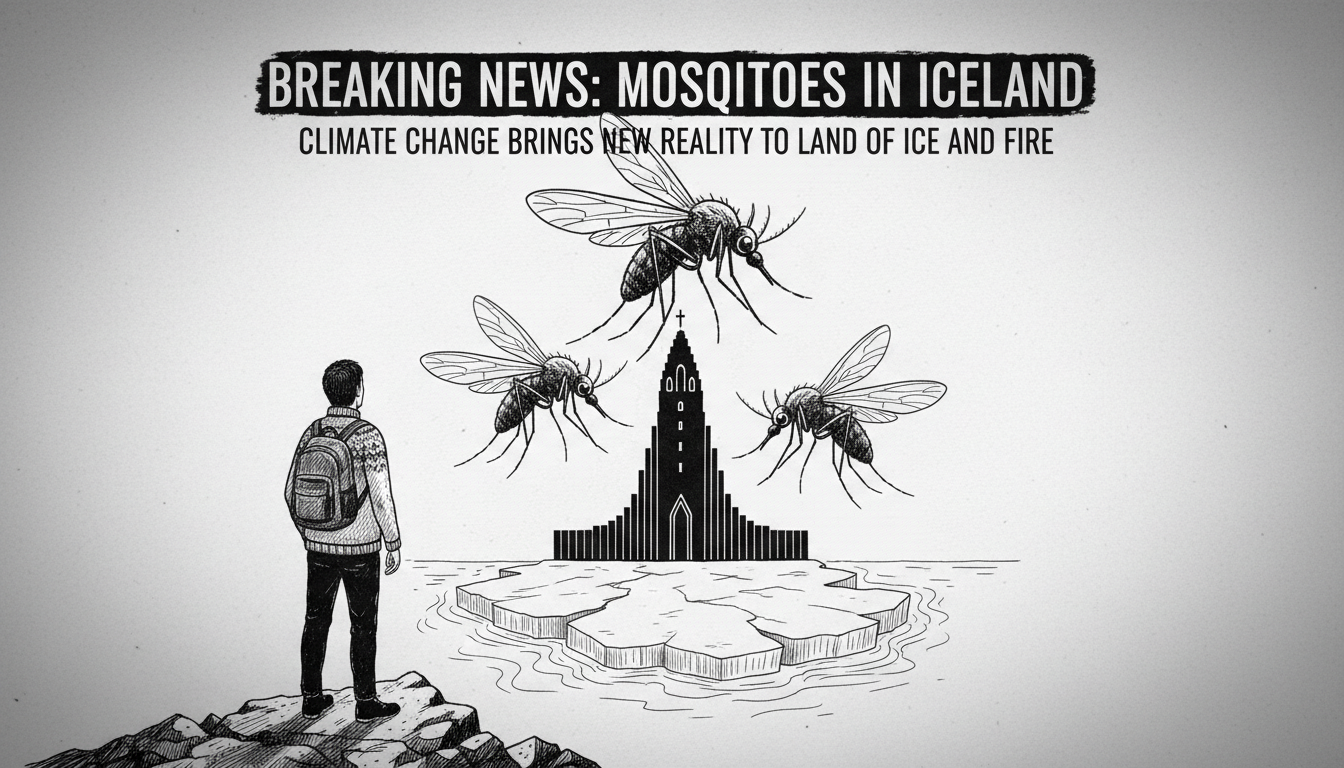Mosquitoes have arrived in Iceland for the first time in recorded history. Three mosquitoes of the Culiseta annulata species were discovered in Kiðafell, Kjós. This marks a significant environmental shift for a country previously known as one of the few mosquito-free places on Earth.
International media outlets are reporting this development as evidence of climate change impacts. The mosquitoes were found near Reykjavík in late summer. Scientists confirm this is the first documented presence of biting mosquitoes in Iceland.
Matthías Alfredsson from the Icelandic Institute of Natural History confirmed the discovery. He stated these particular mosquitoes are cold-resistant and could potentially survive Icelandic winters. This raises concerns about permanent establishment.
Iceland has traditionally been a rare sanctuary from mosquitoes. Travelers rarely needed insect repellent when exploring the country's famous natural landscapes. This discovery suggests that may change in coming years.
The Culiseta annulata species is known for its resilience in cold conditions. Scientists note this particular type thrives in lower temperatures than most mosquitoes. This makes Iceland's cooling climate less of a barrier than previously thought.
Climate scientists have long predicted that warming temperatures would eventually bring mosquitoes to Iceland. The country's location near the Arctic Circle provided natural protection until now. Changing weather patterns appear to have overcome this geographical advantage.
What does this mean for Iceland's ecosystem? The introduction of any new species can have unpredictable consequences. Mosquitoes could affect local bird populations and potentially spread diseases, though Iceland currently has no mosquito-borne illnesses.
Tourism officials are monitoring the situation carefully. Iceland's reputation as a mosquito-free destination has been a minor but notable attraction for visitors. This could impact how travelers prepare for future trips.
The discovery in Kiðafell represents just three individual mosquitoes. Scientists emphasize this doesn't mean widespread infestation has occurred. However, it does indicate the species has reached Icelandic territory.
Researchers will now monitor whether these mosquitoes establish breeding populations. The coming winter will be crucial. If any survive the cold season, Iceland may need to adjust to a new environmental reality.
This development fits global patterns of species migration due to climate change. As temperatures shift, insects and animals are moving into new territories worldwide. Iceland's experience mirrors changes occurring from the Alps to the Andes.
The straightforward reality is that climate change has removed one of Iceland's unique environmental characteristics. The country must now prepare for potential public health and ecological impacts that come with mosquito presence.
Are mosquitoes dangerous in Iceland?
Currently, Iceland has no history of mosquito-borne diseases. The primary concern would be itching from bites rather than health risks, though this could change if disease-carrying species arrive.
Could mosquitoes survive Icelandic winters?
The discovered Culiseta annulata species is cold-resistant. Scientists say they potentially could survive mild winters, especially as climate change makes winters warmer.
Will this affect tourism?
It might change packing habits for some travelers who previously didn't need insect repellent. However, Iceland's major attractions remain unaffected by this discovery.

